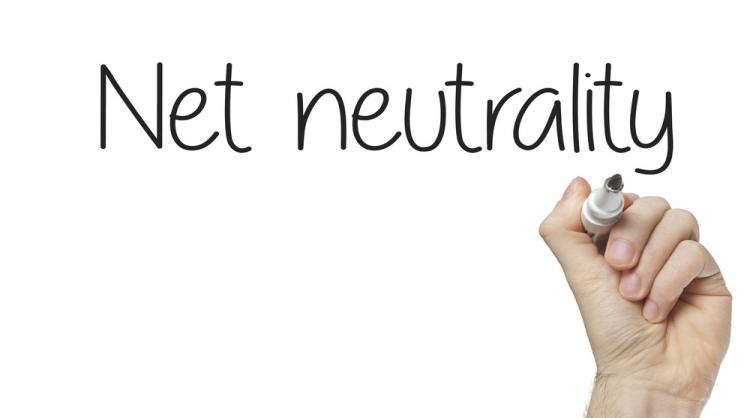Now is the Time for Congress to Compromise on Net Neutrality
October 30, 2015 | by Andrew Regitsky

Suggesting to Congress that they compromise on an issue is usually fool’s gold. When one side believes it has an advantage these days it is more apt to leverage it to gain additional power rather than magnanimously seek a solution that all can support. True compromise in Congress is rare and and getting rarer. And yet for all the Congressional futility that exists, now is the time when a true Net Neutrality compromise is actually possible!
Compromise is possible because of two major reasons. First, Congress has just compromised on a budget, which will ensure that one of the main arenas where the two parties sparred on Net Neutrality is immediately taken out of the equation.
Since the FCC’s Open Internet Order became effective, Republicans in Congress had continually inserted into their 2016 budget proposals measures that would slash the Commission’s funding and prohibit it from implementing Net Neutrality. The provisions would have specifically prevented any direct or indirect Internet price regulation by the FCC under Title II of the Communications Act until all the court cases opposing its Open Internet Order are concluded. Since the court cases against the Order could continue for years, especially if Internet service providers lose at the DC Circuit Court and appeal to the US Supreme Court, implementation of the Order would be held up indefinitely. The new budget does not address Net Neutrality. Thus, this line of attack is now off the table.
The second major reason Net Neutrality compromise is now possible is the fact that the DC Circuit Court has picked the three judges that will decide the Open Internet Order case, and based on the previous record of one of the judges, either side is likely to win.
The DC Circuit Court assigned U.S. Judge David Tatel to review the new rules. Judge Tatel had a major role in the two previous Internet cases that went against the FCC and directly led the Commission to adopt the Open Internet rules in February that classified broadband Internet service as a Title II telecommunications service and began the current legal battle.
The panel will also include Judge Sri Srinivasan, President Barack Obama’s first appointee to the appeals court, and Judge Stephen F. Williams, who was appointed by President Ronald Reagan in 1986. Judge Tatel was appointed by President Bill Clinton.
The presence of Judge Tatel cannot be overstated. In 2010 he wrote the Opinion in the Comcast case in which the Court found that the Commission went too far when it ruled against Comcast for allegedly slowing speeds to some customers who were downloading large files on peer-to-peer networks.
Then in 2014, Judge Tatel was the author of a majority decision that struck down the provisions of the Commission’s previous Open Internet Order for treating Internet Service Providers as Title II common carriers while they were still classified as Title I information service providers.
Even while rejecting that Order, however, the Judge told the FCC that if broadband Internet service was a Title II service, those rules could have been found lawful, directly leading the FCC’s to have the confidence to adopt its current Order, which is now in dispute.
Thus, it is anybody’s guess how Judge Tatel will rule now. With the other judges new to Net Neutrality it seems that they will follow Judge Tatel’s lead. Either side is likely to win.
But why wait for the Court to decide a case likely to be appealed for years. A bipartisan solution for Net Neutrality should not be hard to reach. Both political parties now agree with the Commission’s “bright line” Open Internet rules, including “no blocking,” no throttling,” and “no prioritization” of Internet traffic.
There ought to be an easy way to make these provisions law without resorting to Title II. Moreover, since even the FCC has stated that it is not interested in regulating the pricing of ISPs, both Democrats and Republicans should be able to agree on a law that prohibits the Commission from prescribing specific Internet prices.
Congress will never be able to act before the Court holds oral argument on the Open Internet Order on December 4th. However, with the budget battles behind it, the time is ideal for Congress to step in and end the Net Neutrality battles forever. Almost everyone agrees on a solution, we just need political parties brave enough to step forward and seize it.
By Andy Regitsky, CCMI

